Description
Antonin Magne
Antonin Magne 15 February 1904 – 8 September 1983) was a French cyclist who won the Tour de France in 1931 and 1934. He raced as a professional from 1927 to 1939 and then became a team manager. The French rider and then journalist, Jean Bobet, described him in Sporting Cyclist as “a most uninterviewable character” and “a man who withdraws into a shell as soon as he meets a journalist.” His taciturn character earned him the nickname of The Monk when he was racing.
Professional Cycling Career
Early Career
Magne became a professional cyclist in 1927. He was part of the Alleluia Team which, with Pierre Magne, Julien Moineau, Marius Gallotini, Arsène Alancourt, and André Cauet, won the 1927 GP Wolber, considered the unofficial world road race championship.
Magne first rode the Tour in 1927, alongside André Leducq in the France team.
1931 Tour de France
In 1931, defending champion André Leducq was not in good shape, so Magne took over the role of team leader. Although he was repeatedly attacked by the Italian Pesanti and the Belgian, Jef Demuysere, Magne was able to win the race.
1932 to 1933
In 1932, Magne did not defend his Tour de France title; instead, he started in the Giro d’Italia, but did not impress. In 1933, Magne returned to the Tour de France and finished in 8th place.
1934 Tour de France
In 1934, Magne again started in the Tour de France, in a strong French team. Magne led from the second day and his team won 19 of the 23 stages, Magne himself winning two stages, including the first time trial in the Tour de France, over 80 km from La Roche-sur-Yon to Nantes. His hopes looked over when he broke a wheel on the descent from l’Hospitalet to Ax-les-Thermes in the Pyrenees. He was rescued by the youngest rider in his team, René Vietto, who handed him his own wheel despite being in third place himself. The next day Magne again had trouble. Vietto was just ahead of him on the Col de Portet d’Aspet, turned and saw his leader waving a wheel, and rode back down the hill to hand him his own. Vietto wept by the roadside as he waited for another wheel. Magne won the Tour and France dominated it but Vietto, who finished fifth, was the hero. He also won the Grand Prix des Nations, the unofficial world championship of the individual time trial, for the first time that year.
Late Career
In 1935 and 1936, Magne again won the Grand Prix des Nations. In 1935, he started in the Tour but left the race halfway while in second place in the general classification, after a crash on the bottom of the Galibier.
In 1936, Magne rode strongly in the Tour and finished in second place, behind Sylvère Maes. Afterward, he became the World Champion.
In 1937, Magne did not start in the Tour, saying that he had already decided this in 1936 and that he was still recuperating from a car accident in May. He became the official starter of the 1937 Tour instead.
In 1938, Magne rode the Tour de France for the last time, and in the last stage he crossed the finish line together with André Leducq, who also rode the Tour for the last time; both were declared winners of that stage.
Post-racing Career
Upon retirement, Magne became a directeur sportif for several successful riders, such as Louison Bobet and Raymond Poulidor on the Mercier team. He is credited with being a mentor to the great riders of the era, and is considered to be one of the best directeurs sportif in the sport. He never referred to his riders by the informal “tu” but always as “vous”; riders addressed him as “Monsieur Magne”. Louis Caput replaced Antonin Magne as manager of Fagor-Mercier in 1970.
Magne lived for much of his life at Livry-Gargan, in the département of Seine-Saint-Denis near Paris. In 2004, the Tour de France honored the centenary of his birth with a stage finish there. Magne was made a Chevalier de la Légion d’Honneur in 1962.
************************
All of the postal cards on our site are original, with no reproductions.
As many of the cards are quite old and one-of-a-kind, please look carefully at the photos to determine their condition.
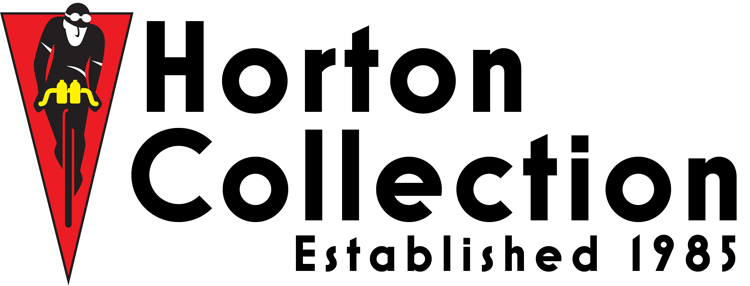
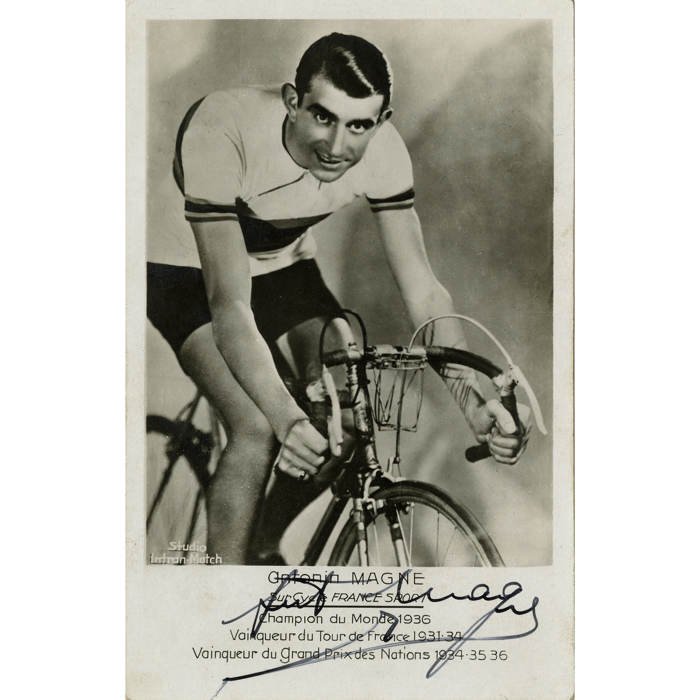

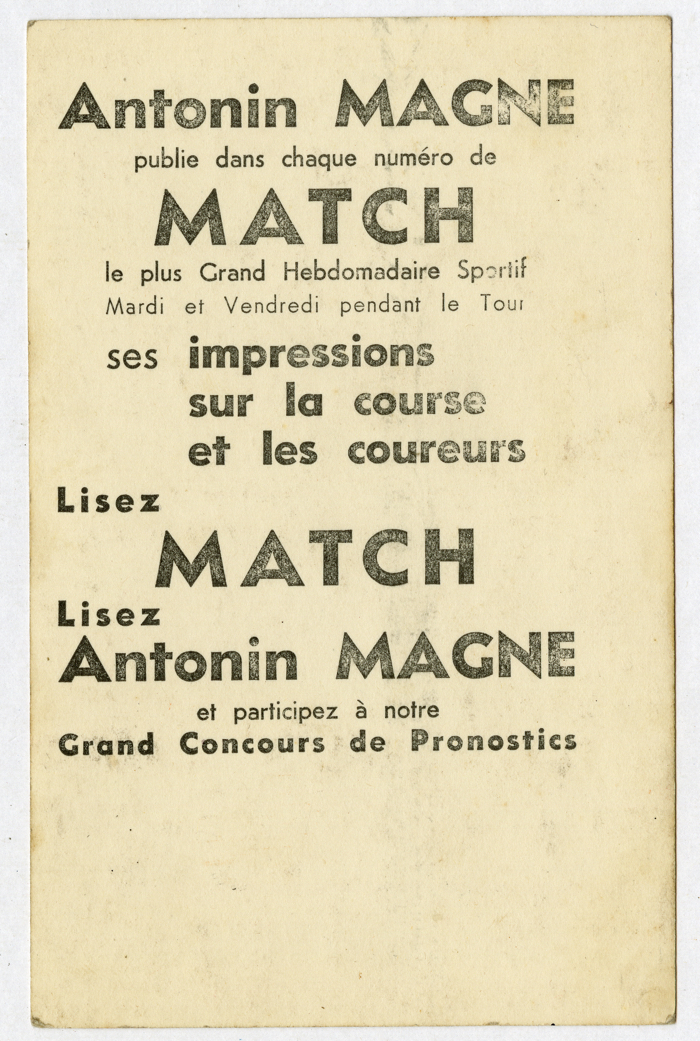

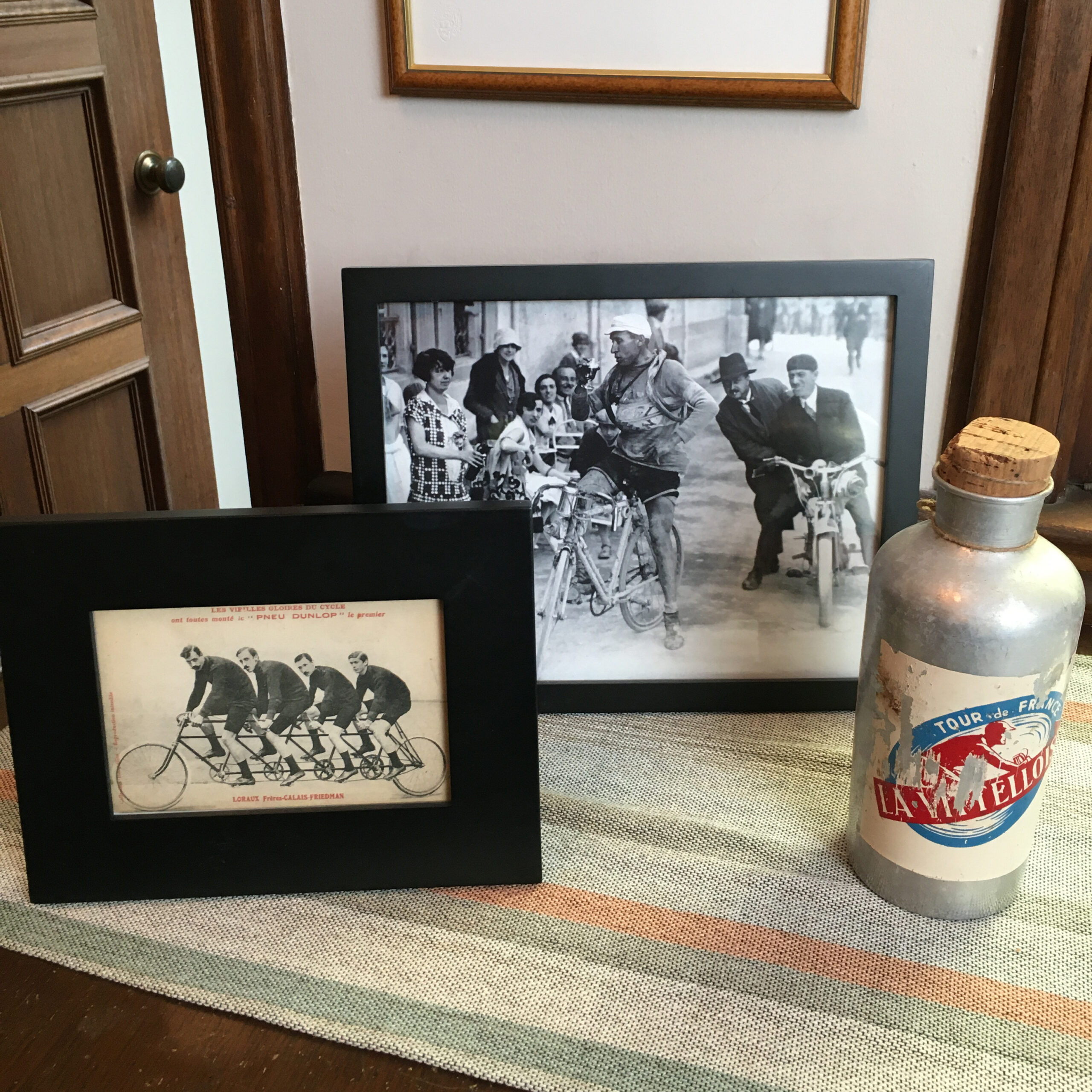
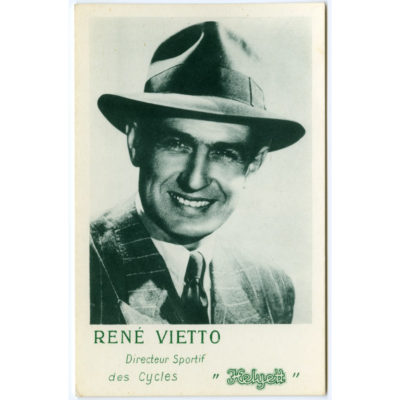
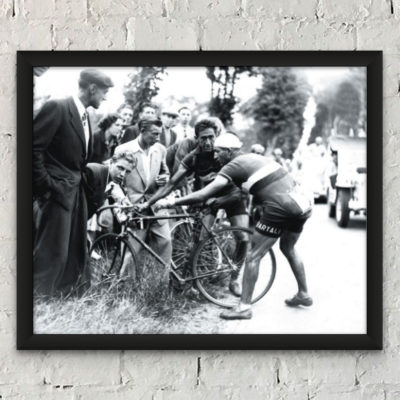

Recent Comments